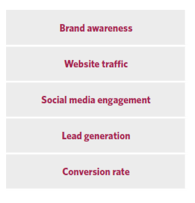
Retail audits are a critical component of a company’s overall retail execution strategy. They allow merchandisers to capture vital field data that affects the health of your business, such as retailer compliance, stock levels, and competitor activity. Moreover, managers are able to use data accumulated over time to make agile adjustments to their retail plan. Read on to learn more about three of the biggest rewards afforded by retail audits.
No More Paper
Conducting a retail audit through manual documentation with pen and paper is problematic in several ways. For starters, paper forms are expensive to print and store; switching to digital forms cuts costs associated with buying ink and filing cabinets. What’s more, writing things down by hand is time-consuming for retail merchandisers. Employees would much rather be spending their time on results-oriented activities rather than administrative tasks.
Unfortunately, writing information down by hand can be subject to human error. Retail audit software helps to reduce accidental mistakes by allowing managers to customize form fields with numeric, yes/no, selection, short-text, and long-text questions. Managers can also mark select fields as “required” so that merchandisers cannot submit their retail audit report until all mandatory fields are filled out.
Share It All
Another reason to utilize digital retail audits is that all data collected is automatically synced to the back office in real-time. This ability lets managers take care of problems in the field faster than ever before and make informed decisions without having to wait to receive information from their merchandisers.
With certain retail audit and execution software, any data amassed from retail store audits can be exported to Excel or .csv files for more in-depth analysis. Once exported, managers can use pivot tables within Excel to take a closer look at a complex data set. Links to digital retail audits can also be sent to third parties for review, thus reinforcing relationships with clients and business partners. Some software also offer additional transparency by providing third parties with direct access to retail audits.
Data-Driven Insights
It’s hard to determine what aspects of a retail execution plan need to be changed without hard data. One of the greatest advantages to using digital retail audits is the insights your business can gain through data analytics. For example, knowing which retail locations frequently have low stock levels of a certain product may lead managers to send extra stock or hold promotions for that product. On the other hand, it might be smart to pull a particular product from shelves if it’s not selling at a given location.
Having data about your company’s retail performance readily accessible can be beneficial during retailer negotiations. If companies are able to point to specific examples of past success, they can gain an upper hand when bargaining for shelf space.
Having an effective and accurate way to record information about your company’s retail performance is essential for removing inefficiencies and, ultimately, driving sales. This post just barely scratches the surface about the power of retail audits. For more information about retail store audits best practices, check out this guide!
Business & Finance Articles on Business 2 Community(71)
Report Post






